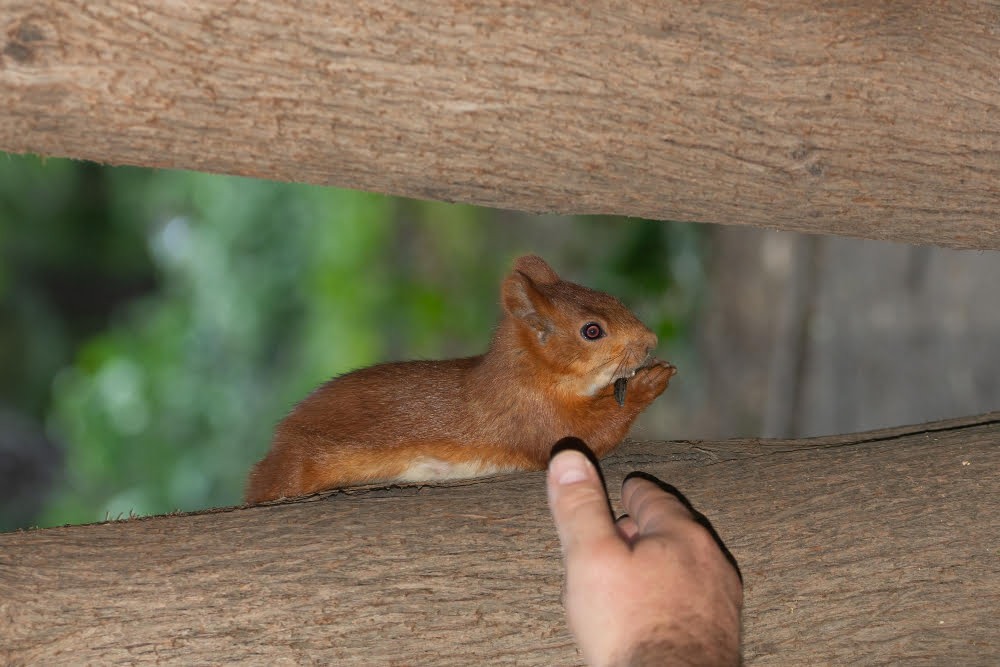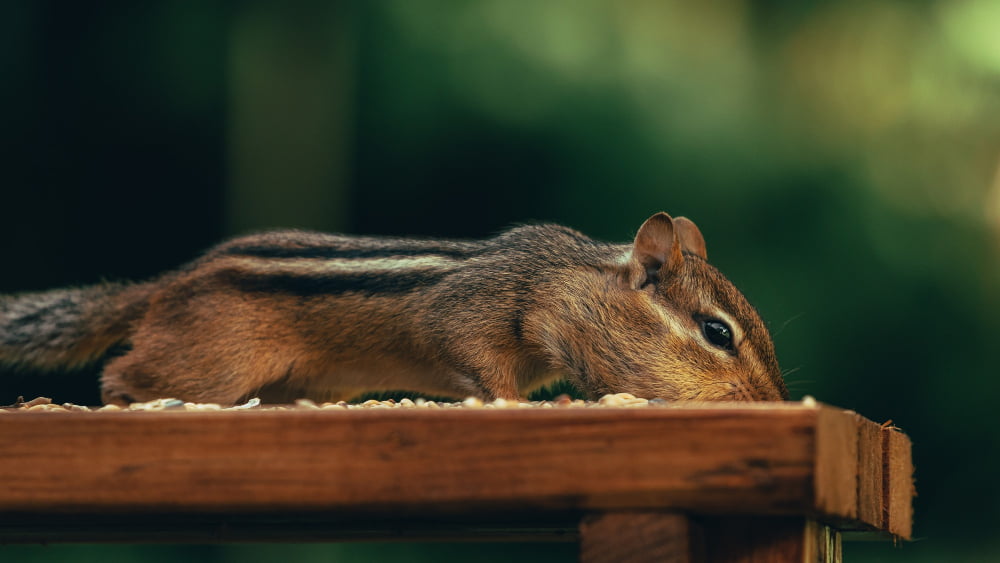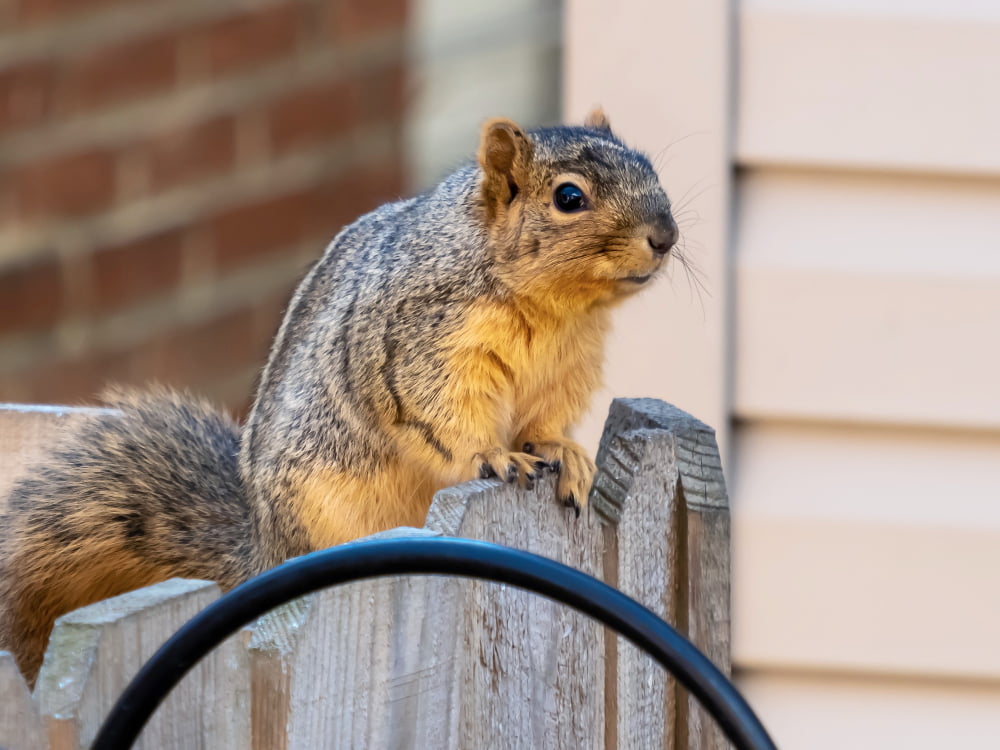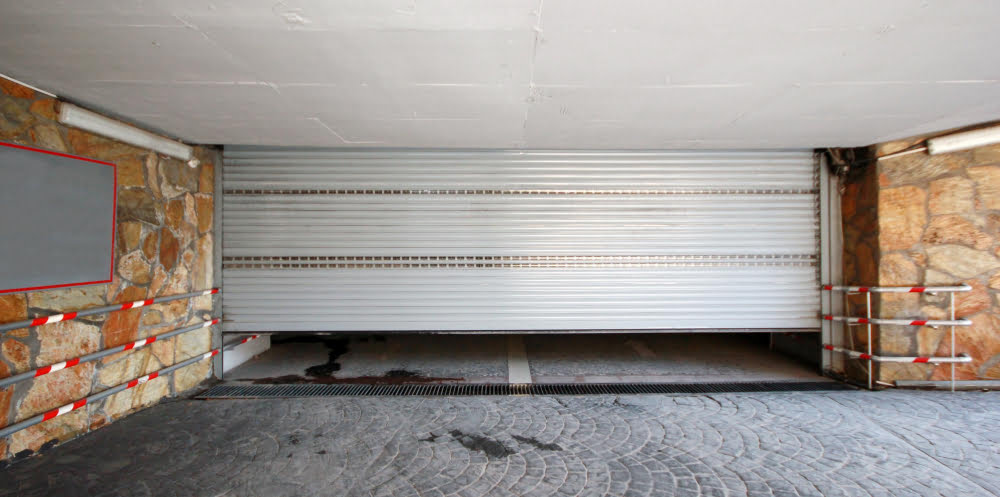Discover effective strategies for eliminating chipmunks from your garage to maintain its condition and safety.
Chipmunks may be cute, but they can cause serious damage to your garage. They chew on wires, insulation, and storage items, and their nesting habits can lead to structural issues.
If you’re facing this problem, you’ve landed on the right page. This article will guide you through a simple yet effective process to evict these little intruders from your garage, and prevent them from returning.
From identifying the signs of a chipmunk infestation, to safe removal methods and preventative measures, every detail is covered to help you reclaim your space.
Let’s dive into the solution.
Key takeaways:
- Identify signs: droppings, food piles, unusual sounds, structural damage, sightings.
- Reasons for attraction: shelter, food sources, nesting materials.
- Potential damage: structural weaknesses, chewed items, health risks.
- Removal methods: live traps, repellents, environmental modifications, exclusion.
- Garage maintenance: declutter, cleanliness, seal entry points, prevent return.
Identifying Signs of Chipmunks in Your Garage

It can be initially easy to overlook, but several telltale indications suggest a chipmunk infestation in your garage. First, droppings can provide a clear sign; these are usually small, about 6-8 mm long, and can be found scattered near food sources, pathways, or burrow openings.
Another subtle indication is the presence of food piles. Chipmunks are known to store food, especially if they have a safe place to stash it, like your garage. If you notice small piles of seeds or nuts, this could be a chipmunk’s winter cache.
Also, keep an ear out for odd sounds. High-pitched chirping sounds or fast, scampering noises are chipmunks’ characteristic sounds. A rapid dash or a quick scamper could mean there’s a chipmunk occupying your garage.
One significant and possibly worrisome sign is structural damage, especially in insulation and wiring. This issue often arises because chipmunks, like most rodents, have teeth that are constantly growing, and they have the habit of gnawing on things to keep their teeth from overgrowing.
A final sign is sighting a chipmunk directly. They are generally busy bodies, and if they’ve found a safe harbor in your garage, you’re likely to catch a glimpse of them darting about at the crack of dawn or in the late afternoon.
Understanding Why Chipmunks Are Attracted to Garages

The appeal of garages to chipmunks may stem from a variety of factors. Firstly, these small creatures seek shelter, and a garage’s typically quiet nature and limited human interaction provide an ideal hideaway. It’s a haven against predators and harsh weather conditions.
Secondly, chipmunks are scavengers, hence, a garage with accessible food sources, like trash, pet food, bird seed, or spilled nuts and seeds become an inviting feeding ground. These critters thrive on fruits, nuts, seeds, and insects, which can often be readily sourced from an unkempt garage.
Lastly, garages often furnish chipmunks with possible nesting materials. Discarded fabrics, papers, and insulation provide warm, secure places for chipmunks to build nests, lay their young, and thrive. Hence, a cluttered garage emitting the scent of food, coupled with easy access and ample nesting material, proves irresistible to these creatures.
Consider these when pondering why these little intruders have made themselves quite at home in your garage.
Assessing Potential Damage Caused By Chipmunks in Garages

Now that you’ve spotted the tell-tale signs of a chipmunk’s presence, it’s important to understand the possible harm these little visitors can cause. Chipmunks are known for their burrowing habits, which can lead to structural weaknesses or even damages in walls and floors of the garage. They further exploit any pre-existing cracks or openings for these covert activities.
Chipmunks also pose a threat to your stored items. Those old newspapers, cardboard boxes, or wooden furniture can be chewed and torn apart for nesting materials. While their diet primarily consists of seeds and nuts, in an opportunistic moment, they may nibble on wires, leading to possible short-circuits or fire hazards.
Lastly, while chipmunks are generally clean animals, their droppings and urine can lead to unpleasant odours, unsanitary conditions, and potential health risks.
Effective Chipmunk Removal Techniques

To manage a chipmunk infestation in your garage, employ a mixture of humane and strategic methods.
A popular method involves using live traps. Place these on pathways and frequented areas with preferred bait like peanuts or sunflower seeds. Check daily and once captured, relocate the chipmunk at least 5 miles away to restrict its return.
Another technique is utilizing chipmunk repellents. Their effectiveness is based on chipmunks’ aversion to certain smells. Spent coffee grounds, cinnamon, peppermint, and citrus are successful repellents. Sprinkle these near entrances and around the garage.
Additionally, modifying the environment around your garage can disturb chipmunks’ living conditions. This may include removing food sources, trimming back plants that offer cover, and sealing up burrows.
Lastly, permanent exclusion is a vital aspect of chipmunk control. This requires identifying and sealing all potential entry points with steel wool or hardware cloth which chipmunks can’t chew through. Regularly inspect and maintain these areas to prevent another infestation.
Remember, getting rid of chipmunks is one thing, keeping them out permanently is another. Learning about these techniques and applying them improves the health and safety of your garage.
Using Live Traps for Chipmunk Control

Humane live traps are an ideal option, offering a safe way to capture and relocate these small animals without causing them harm. It’s important to select traps specifically designed for small rodents to ensure effectiveness.
Once the trap is set, use appealing bait, such as peanut butter or small nuts, to lure chipmunks inside.
As a crucial detail, check these traps at least twice a day to prevent causing unnecessary stress or harm to the captured chipmunk.
Once captured, be sure to release the animal at least five miles away from your property to disorient their homing instincts and reduce the chances of them returning.
Always remember to follow local wildlife regulations regarding the trapping and releasing of wildlife.
These carefully planned steps provide an efficient and humane way to control a chipmunk infestation in your garage.
Utilizing Chipmunk Repellents: Spent Coffee Grounds, Cinnamon, Peppermint, and Citrus

Spent coffee grounds are a great way to fend off chipmunks. After brewing your morning cup of joe, instead of disposing the used coffee grounds, spread them around the perimeter of your garage. Not only does it repel chipmunks, it fertilizes your soil as well.
Aromatic spices such as cinnamon can turn your uninvited guests away. By placing a small dish of cinnamon near potential entry points, you harness the deterrent power of this spice. It’s impactful aroma proves too overpowering for the delicate senses of the chipmunks.
Peppermint carries a strong scent that chipmunks dislike intensely. A few drops of peppermint essential oil on a cotton ball placed around the garage will stave off chipmunks, leaving your garage smelling fresh.
Citrus fruits, particularly oranges and lemons can also play a major role in your chipmunk control plan. Chipmunks dislike the scent, and scattering peels around your garage can provide a simple, natural repellent.
However, consistently refreshing these natural repellents is crucial for maintaining their effectiveness. Remember, any repellent, to be effective, requires regular application.
The Role of Certain Scents in Repelling Chipmunks

Dealing with the persistent little trespassers often involves the smart use of scents to repel them. A scent-based deterrent comes in the form of essential oils. The rodent’s heightened olfactory sensitivity makes peppermint oil, mint, eucalyptus, and citrus oils perfect for this purpose.
Spreading these essential oils around your garage disrupts their sense of comfort and familiarity in the environment. Simple application methods include soaking cotton balls in these oils and placing them strategically around your garage.
Another efficient scent repellent is the smell of predator urine. Granules or sprays made from the urine of natural predators to chipmunks such as foxes, can be used around the garage perimeter. This scent scares the chipmunks and serves as a psychological barrier making them believe a threat is nearby.
Always remember to reapply these scent-based deterrents, especially after the rain or during seasons of higher chipmunk activities, for the most effective results.
Sealing Garage Entry Points to Prevent Chipmunk Infestations

To begin, it’s crucial to identify all possible garage entry points that a chipmunk could exploit, such as cracks in the floor, gaps around windows and doors, or ventilation openings. Once discovered, these areas should be thoroughly sealed.
Use steel or copper wool, combined with caulking, to fill in small cracks or holes. These materials are robust, and more importantly, chipmunks cannot chew through them. Additionally, clear the surrounding area of any overhanging branches or tall shrubbery that could serve as an access route.
For larger gaps or door openings, consider installing weather stripping. It’s not only effective against chipmunks but will conserve energy by maintaining your garage’s internal temperature, a bonus in both hot and cold climates.
Remember, proper maintenance is key. Regularly inspection for new access points and promptly seal them. This proactive approach is far more effective than attempting to tackle an established chipmunk infestation.
Continual Garage Maintenance to Deter Chipmunks

Minimizing clutter is key. Chipmunks are attracted to cozy spots to nest, make it hard on them by regularly sorting out and cleaning up your garage. Dispose of unnecessary items and keep what you need neatly arranged.
Maintain cleanliness at all times. Aside from decluttering, regularly sweeping your garage floors can also help ward off chipmunks. These little critters are deterred by simple hygiene practices such as this.
Ensuring your garage doors and windows are properly closed can significantly deter chipmunks. Even the smallest crack or hole is a welcoming sign for them. Regularly check for these potential entries and seal them off promptly.
Consider installing weather strips on your garage doors for added protection. This installation can help seal off any gaps around your doors, effectively preventing chipmunks from getting in.
Frequently inspect the exterior of your garage for burrows and nests. Chipmunks could be residing very close to your garage, waiting for the right opportunity to move in. By eliminating these potential habitats, you’re reducing the risk of an infestation.
Power washing your garage quarterly can also help. This removes lingering smells that may attract chipmunks. Additionally, it’s an effective way to clean up after using repellents, especially natural ones, which might have unpleasant odors.
Lastly, routinely trimming shrubbery and vegetation around your garage can discourage chipmunks from deciding to move in. Dense shrubbery is an ideal hiding spot for chipmunks; keep their potential home as unfriendly to them as possible.
Implementing Measures to Prevent Chipmunks From Returning to Your Garage

Once chipmunks have been effectively removed, maintaining a garage that is unattractive to these tiny invaders becomes crucial. First, ensure regular cleanup routines, eliminating food sources such as bird seeds, pet food, or stored grains. Always, keep these items in sealed containers or elevated storage areas.
Next, regular inspections for new entry points are crucial, patch them up as soon as possible. Meticulous yard maintenance can also discourage chipmunks. Trim the shrubbery and remove piles of wood or leaves near your garage that could potentially serve as chipmunk invites.
Additionally, consider gardening with chipmunk-repelling plants. Some good options include daffodils, ornamental alliums, and lily of the valley. These help naturally ward off chipmunks with their scent and taste.
Lastly, maintain a routine of applying natural repellents. A bi-weekly sprinkle of peppermint oil or cayenne pepper around your garage will create an environment that is less appealing to chipmunks.
Remember, prevention is the key to keeping your garage chipmunk-free over the long term.
FAQ
What will make chipmunks go away?
Using essential oils such as peppermint, citrus, cinnamon, and eucalyptus can effectively deter chipmunks from your garden.
What do chipmunks hate the most?
Chipmunks have a strong aversion towards certain odors, particularly human smell, along with the scents of peppermint, garlic, hot spices, eucalyptus, and cinnamon.
What are the most effective traps for capturing chipmunks in a garage?
The most effective traps for capturing chipmunks in a garage are live catch-and-release traps such as Havahart traps or tunnel traps that allow for humane capture.
How can garage design alterations assist in chipmunk prevention?
Garage design alterations, such as sealing all small openings and integrating rodent-proof materials into the designs, can deter chipmunks from invading and nesting in the garage space.
What are some natural repellents to deter chipmunks from entering a garage?
Natural repellents to deter chipmunks from entering a garage include peppermint oil, cayenne pepper, and predator urine such as fox or coyote.